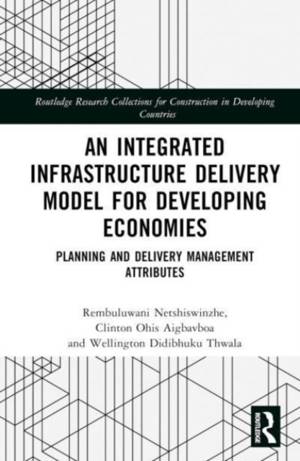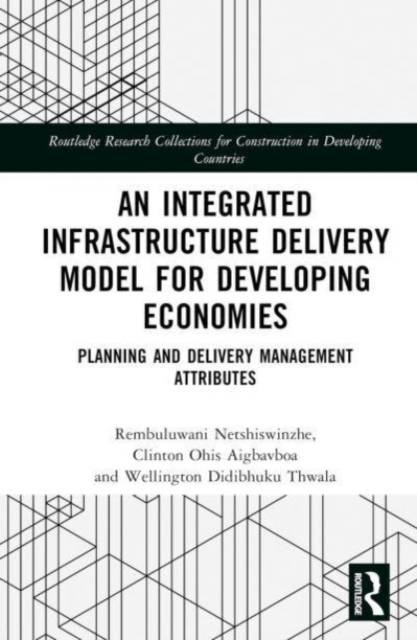
- Afhalen na 1 uur in een winkel met voorraad
- In januari gratis thuislevering in België
- Ruim aanbod met 7 miljoen producten
- Afhalen na 1 uur in een winkel met voorraad
- In januari gratis thuislevering in België
- Ruim aanbod met 7 miljoen producten
An Integrated Infrastructure Delivery Model for Developing Economies
Planning and Delivery Management Attributes
Rembuluwani Netshiswinzhe, Clinton Aigbavboa, Wellington Didibhuku ThwalaOmschrijving
This book explores the attributes of an integrated model for infrastructure delivery as a means to achieve high impact investing, sustainable growth and development in a developing economy.
An Integrated Infrastructure Delivery Model for Developing Economies: Planning and Delivery Management Attributes is premised on the understanding that one of the most significant barriers to efficient and effective infrastructure delivery is the nature and extent of fragmentation in the ways in which infrastructure projects are planned, designed, and delivered. Using a Delphi method, the research presented in this book examines the infrastructure delivery models and practices that have been employed in South Africa and other developing countries, and in doing so presents eight attributes for integrated infrastructure delivery. These are: (i) developing a common vision for the community, (ii) stakeholder participation, (iii) integrated project development and scoping, (iv) access to planning information, (v) cross-sectoral planning, (vi) integrated infrastructure master plans, (vii) statutory and regulatory compliance and (viii) integrated contractual frameworks. The book presents a practical model that can serve as a guide and a manual for project planning and development to achieve integrated infrastructure delivery in developing economies. The proposed model should serve as a framework to inform future planning and programming of infrastructure projects within the public sector space. Furthermore, the application of the model will help resolve the problems of fragmentation and lack of coordination in how infrastructure projects are planned and implemented.
This book will be beneficial to infrastructure practitioners, policymakers, researchers and academics who pursue best practice models to improve the delivery and management of infrastructure.
Specificaties
Betrokkenen
- Auteur(s):
- Uitgeverij:
Inhoud
- Aantal bladzijden:
- 160
- Taal:
- Engels
- Reeks:
Eigenschappen
- Productcode (EAN):
- 9781032375991
- Verschijningsdatum:
- 29/08/2023
- Uitvoering:
- Hardcover
- Formaat:
- Genaaid
- Afmetingen:
- 156 mm x 234 mm
- Gewicht:
- 439 g

Alleen bij Standaard Boekhandel
Beoordelingen
We publiceren alleen reviews die voldoen aan de voorwaarden voor reviews. Bekijk onze voorwaarden voor reviews.









